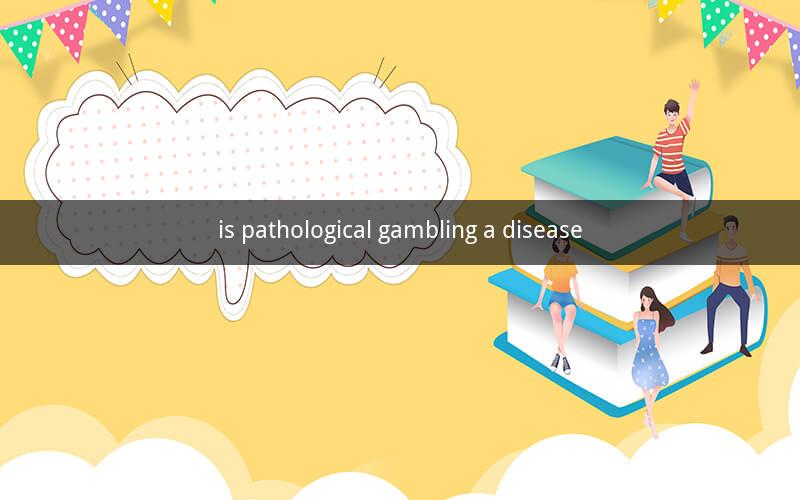
Table of Contents
1. Understanding Pathological Gambling
2. The Science Behind Pathological Gambling
3. Signs and Symptoms of Pathological Gambling
4. The Impact of Pathological Gambling on Individuals and Society
5. Treatment and Support for Pathological Gamblers
6. Prevention and Education
7. Legal and Ethical Considerations
8. Conclusion
1. Understanding Pathological Gambling
Pathological gambling, also known as gambling disorder, is a mental health condition characterized by the inability to control the urge to gamble. Individuals with this disorder often experience significant distress and impairment in their personal, professional, and social lives. It is essential to recognize that pathological gambling is a real and treatable condition.
2. The Science Behind Pathological Gambling
Research has shown that pathological gambling is a complex disorder with both genetic and environmental factors contributing to its development. Brain imaging studies have revealed differences in the brain structures of individuals with gambling disorder compared to those without. Additionally, neurotransmitter imbalances and stress have been associated with the onset and progression of pathological gambling.
3. Signs and Symptoms of Pathological Gambling
Several signs and symptoms can indicate pathological gambling. These include:
- Inability to control gambling behavior
- Preoccupation with gambling
- Repeated unsuccessful attempts to stop gambling
- Lying to hide gambling activities
- Risking or losing significant relationships, jobs, or opportunities because of gambling
- Using gambling as a way to escape problems or negative emotions
4. The Impact of Pathological Gambling on Individuals and Society
The consequences of pathological gambling can be severe. Individuals may experience financial, emotional, and social problems, including:
- Financial ruin
- Legal problems
- Marital and family issues
- Depression and anxiety
- Substance abuse
- Suicidal thoughts
Society also bears the brunt of the impact of pathological gambling. It can lead to increased crime rates, reduced productivity, and higher healthcare costs.
5. Treatment and Support for Pathological Gamblers
Treatment for pathological gambling typically involves a combination of therapy, medication, and support groups. Cognitive-behavioral therapy (CBT) is a common approach that helps individuals develop healthier gambling behaviors and coping strategies. Medications may be prescribed to address underlying mood disorders or冲动控制障碍. Support groups, such as Gamblers Anonymous, provide a supportive environment for individuals to share their experiences and receive encouragement.
6. Prevention and Education
Preventing pathological gambling involves education and awareness. It is crucial to inform the public about the risks associated with gambling and to promote responsible gambling practices. Schools, communities, and workplaces can play a significant role in educating individuals about the signs of gambling disorder and providing resources for those in need.
7. Legal and Ethical Considerations
Legal and ethical considerations surrounding pathological gambling are complex. Governments must balance the interests of individuals who may benefit from gambling activities with the need to protect those who may be harmed. Additionally, ethical concerns arise regarding the marketing and advertising of gambling activities.
8. Conclusion
Pathological gambling is a serious mental health condition that can have devastating consequences for individuals and society. Recognizing the signs and symptoms, seeking appropriate treatment, and promoting responsible gambling practices are crucial steps in addressing this issue. By working together, we can help those affected by pathological gambling and create a safer, healthier community.
Questions and Answers
1. What is the primary difference between problem gambling and pathological gambling?
- Problem gambling is characterized by mild to moderate gambling-related problems, while pathological gambling involves severe, chronic, and often uncontrollable gambling behavior.
2. Can pathological gambling be treated?
- Yes, pathological gambling is a treatable condition. Effective treatments include therapy, medication, and support groups.
3. What are some common triggers for pathological gambling?
- Triggers can include stress, boredom, financial difficulties, and social pressure.
4. How does pathological gambling affect the family of a gambler?
- Pathological gambling can lead to strained relationships, financial problems, and emotional distress for family members.
5. Can medication help treat pathological gambling?
- Yes, certain medications may be prescribed to address underlying mood disorders or冲动控制障碍.
6. Are there any genetic factors that contribute to pathological gambling?
- Yes, research has shown that genetic factors may play a role in the development of pathological gambling.
7. How can someone determine if they have a gambling problem?
- Individuals can assess their gambling behavior using screening tools or by consulting with a healthcare professional.
8. Can pathological gambling lead to suicidal thoughts?
- Yes, the consequences of pathological gambling can include depression, anxiety, and suicidal thoughts.
9. Are there any support groups available for individuals with gambling problems?
- Yes, organizations such as Gamblers Anonymous provide support groups for individuals with gambling problems.
10. How can society help prevent pathological gambling?
- Society can promote responsible gambling practices, provide education and resources, and address the underlying factors that contribute to gambling disorder.